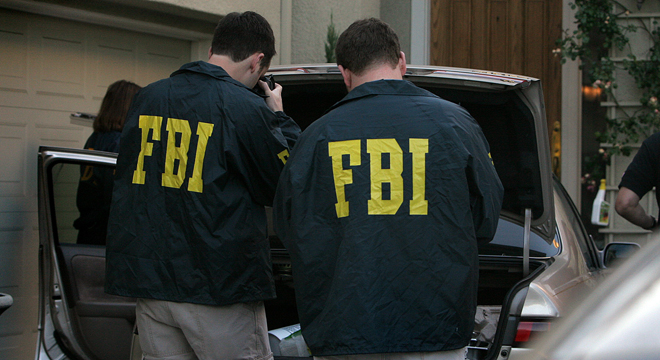President Barack Obama’s decision not to veto the National Defense Authorization Act over controversial and unclear provisions regarding the handling of certain kinds of terror suspects will leave law enforcement officials scrambling to rewrite the rules for how they respond to suspected terrorist incidents.
Once the bill is signed into law, the Obama administration will have 60 days to redraw rules on how everything will be implemented and try to clear up what the White House called the “uncertainty” that the law “will create for our counterterrorism professionals.”
The biggest complaint that law enforcement officials have with the bill, in the words of FBI Director Robert Mueller, is that it “lacks clarity with regards to time of arrest.”
Still, Sen. Carl Levin (D-MI) maintains that the bill had “been written to be doubly sure that there is no interference with civilian interrogations and other law enforcement activities and to ensure that the President has the flexibility he needs to use the most appropriate tools in each case.”
Law enforcement officials aren’t so sure and wonder how members of Congress expect them to be able to instantaneously identify the necessary information they need to make a determination about whether a suspect should go into civilian or military custody.
“They don’t wear al-Qaeda hats,” one law enforcement official official told TPM.
So given that Congress hasn’t exactly made things clear here, we thought we’d lend a hand. Say it’s the middle of the night and you’re an FBI agent en route to botched terrorist attack. Here’s TPM’s guide to the questions you should be asking yourself.
Question 1: Is your arrestee a citizen or lawful U.S. resident?
- Yes. Civilian system it is! The president will still probably get political heat for it, so he might have to remind people about that whole killing-Osama-bin-Laden-thing. (One catch: civil liberties advocates contend that the language of the NDAA leaves the door open for this or a future administration to say the law does apply to American citizens.)
- No. Tough break. On to question number two.
- I don’t know. Understandable! It’s an unfolding national security situation, for Pete’s sake. There’s a chance you might not even know what the suspect’s name is yet. Unfortunately, Congress really didn’t think this one through, so pay attention to that retraining they make you take to see what kind of rules the administration makes up for handling these situations.
Question 2: Does your suspected terrorist have possible ties to al-Qaeda, the Taliban or “associated forces that are engaged in hostilities against the United States or its coalition partners”?
- Yes. If you say so. Move on to question three.
- No. You sure? That “associated forces” term would seem to apply pretty broadly. What does “associated” even mean, really? Couldn’t you pretty much call any organization an “associated” force? “There’s absolutely no restriction on that,” Heather Hurlburt, executive director of the National Security Network told TPM. “People should understand that you are totally at the mercy of any administration and what they decide is a military group.”
- I don’t know. Understandable! Congress offers no help on this, so you should hope that the Defense Department and other government component came up with a plan about what to do.
Question 3: Can the administration spend a little political capital?
- Yes. Pretty much the whole point of the “waiver” system written into the NDAA is to make the administration put some skin in the game if they want to throw a suspected terrorist into the same justice system that killed Timothy McVeigh and has convicted hundreds of individuals on terrorism and terrorism-related cases over the years.
- No. National security politics get nasty fast. The president might not think handling the suspect in the civilian justice system is worth dealing with the political consequences, especially if the incident takes place before the 2012 election.
- I don’t know. Understandable! Not every FBI agent has a direct line to the President of the United States. You’ve got to call your boss, they’ve got to call their boss. What should you do in the meantime? Can you keep questioning the suspect? Should you read him his Miranda rights? All good questions, no good answers.
Question 4: Where’s the nearest military facility?
- Close by. Phew, dodged a bullet there. Give them a ring.
- Far away. Uh-oh. Mueller warned us about this, but the NDAA doesn’t give much guidance. Good luck!









